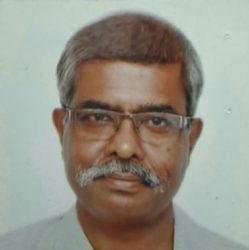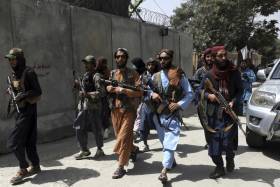
The Earth Day and World Environment days have come and gone leaving messages, making appeals, organising interactions, drawing action plans and what not ? How many of the proposals and pledges we actually follow up or implement in day to day life that can be anybody’s guess.
2) One of the most serious challenges that many nations of Asia, Africa and Latin America face is that of water supply. Situation has become pathetic both for humans and animals from Sahara desert, Cholistan in Pakistan to Bikaner and Jaisalmer in India. This is despite the fact that water constitutes more than 70% of the Earth’s surface. But entire water is also not safe from drinking point of view.

3) Water is basic necessity for sustaining life. Many techniques have been put forward to save water, yet, most of us fail to understand importance of water. Slogans like “Save every drop of water” simply go haywire. If we continue with such a casual approach, by 2050, situation may become alarming, according to a study.
People ,especially rural women have to jostle for water ,mostly bare footed, by covering a distance of five to ten kms on a daily basis. In the process, they along with their children face several health hazards which remain unattended.
4) When we have a dry and painful spell, such as ,from mid March onwards to July or August in the country, people face a combined impact of scorching heat and shortfall of water supply. It severally affects life of the people, animals, aquatic life and birds living in dry and arid zones of Rajasthan, Gujarat, Maharashtra and U.P. ,apart from many other pockets which have lost forest cover over the years.
Since we ignore the issue during and after rainy season, we have perpetual problems such as, Cauvery river water dispute between Tamil Nadu and Andhra Pradesh and one involving Yamuna river waters between Haryana and Delhi governments.
There are many more rivers passing through more than one state especially in the North East but so far inter-state disputes have not been surfaced on this count. Rather to get maximum returns, long term schemes to inter link rivers is being revived seriously.

5) During summer months tremendous shortfall is noticed despite issuing of advisories to general public.The Haryana government consistently maintains that it releases adequate water as per existing agreement. They, on their part, also blame the Punjab Government for restricted supply.
As per latest information, Delhi gets 40% Yamuna water supply from Haryana and rest from Ganga river through U.P. and Bhakra Nangal from Punjab.
Old Habits Die Hard
6) Whatever may be the weather pattern, we , as consumers do not change our day to day habits when it comes to work in kitchen, washing clothes, shaving, brushing teeth, watering plants, crops, lawns etc.
Need For Water Conservation
7) There is tremendous scope for water conservation in the individual performed activities, such as:
a) Use a bucket instead of shower to take bath,
b) Tap water should not be running when soap is applied to body,
c) Tap should be closed/shut while we brush teeth or shave or clean hand or wash clothes,
d) Flushing of toilets unnecessarily has to be avoided,
e) Pour minimum water while mopping or cleaning cemented or tiled floors,
f) Use of bucket and mug instead of pipes while washing vehicles.Latter damages/ erodes pitch on roads very fast,
g) Finish water left in a glass instead of throwing. A few years ago through an advisory ,Delhi Govt. used to appeal to school children to pour left over water of their bottles into flower pots and
h) Closing of taps properly after use.
Rainwater Harvesting (R.H.)
8) As far as collective or community level initiatives for conserving water are concerned, R.H. should get the topmost priority.
Its origin dates back to 3rd Millenium B.C. in China. This technique aims to collect and store Rain water which invariably runs off from top of roof, roads, open grounds etc. By storing it near or under the house or into natural reservoirs or tanks, one can very well meet requirement of water in the lean and dry season without incurring huge expenditure. Consistent replenishment of ground water is very much possible apart from taking care of kitchen garden ,irrigation and industrial needs by suitable catchment, conveyance and storage components.
Treatment & Recharge Possible
9) Rainwater so collected can be treated with a few tablets of Chlorine for making it fit for human consumption. Rainwater harvesting tanks can come up above ground, these can be partly underground as also fully underground.
Cleaning and disinfection is required to be carried out regularly in order to ensure quality of water.
Further, recharge of Dug wells and abandoned Tube wells in the plain areas is also possible by taking water from roof tops by providing drain pipes.

10) Launched by the Central Government in 2019, it aims to provide safe and adequate drinking water to 20 lakh individual household taps in rural areas by 2024 on nominal payment basis. Probably at last Government has realized that
” Unless a charge is levied, wastage can not be prevented”.
As per updated information,10 lakh connections have been already made available. Quite a herculean task !
All the Gram Panchayats/ rural communities are expected to plan, implement, manage, own, operate and maintain their In Village Water Supply Systems. Drought prone zones and deserts will be focussed areas. It also aims to develop human resource for plumbing, electrical, water quality management ,water treatment and often neglected area of Catchment Protection. Augmentation of existing sources of water is also proposed to be taken up.
11) Before concluding, two key comments are called for:
a) It is old wine in new Bottle and
b) Its a pity that we will still take more than two years to provide potable tap water to all.
But not always Government should be blamed. New households and hamlets very much add to the overall burden or responsibility, whatever we may call.

About the Author : Dr. Aaloc Srivastav, Ex CS , Sikkim is a Senior Retd Bureaucrat and passionate about writing on his favourite subjects . The views shared by the author are his personal.







Leave a Reply
You must be logged in to post a comment.